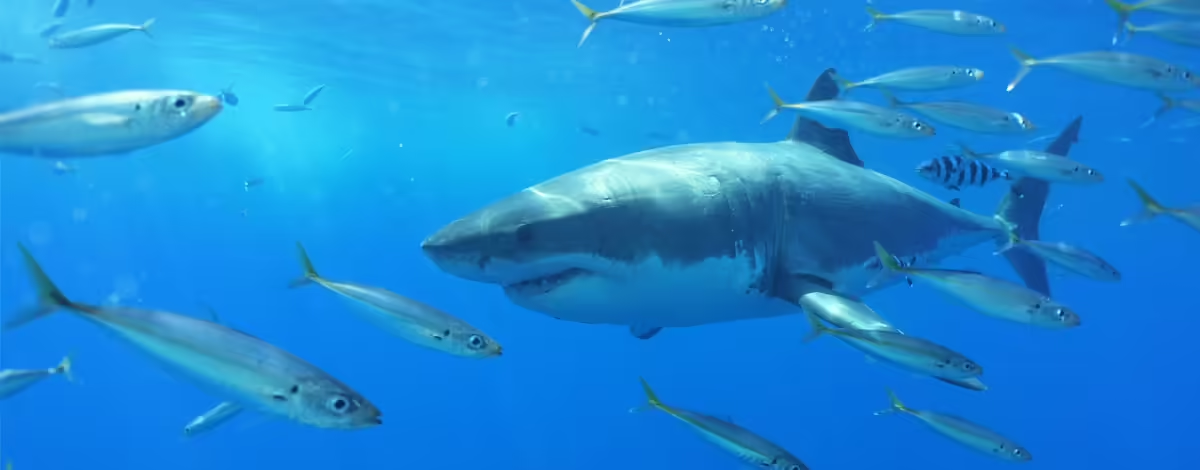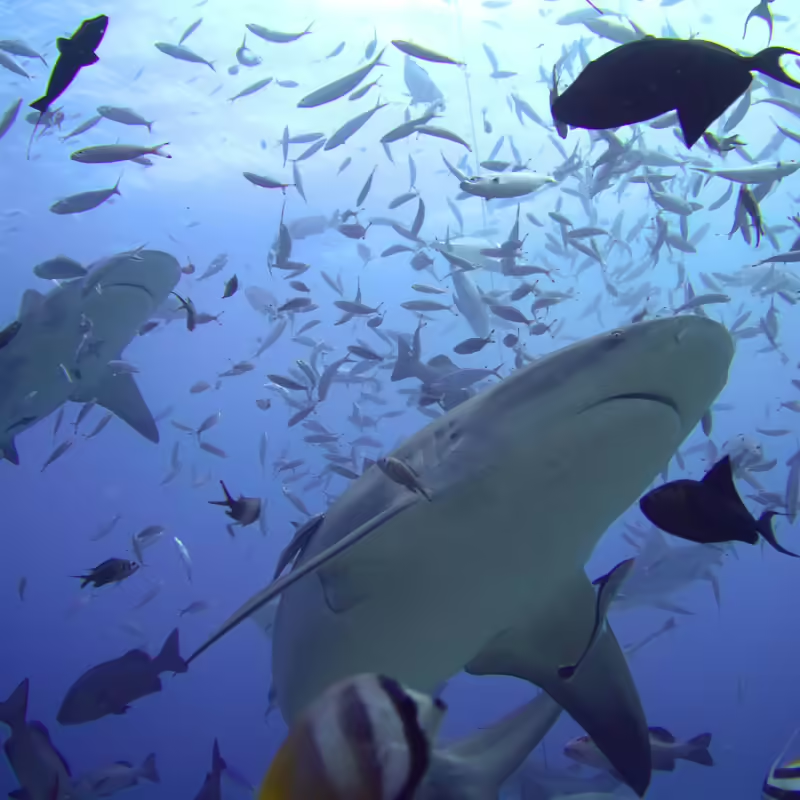
Think about this: when we dive, a common question we ask back on the boat is, “Did you see anything?” or “Did you see the shark?” Sharks make dives special, yet some people fear them, especially after the movie “Jaws.” Peter Benchley, the author, expressed regret before he passed, noting that he hadn’t anticipated such negative reactions towards sharks.
Consider this: do sharks have an important role? Absolutely. They could be seen as the caretakers of the seas and some rivers. They remove weak or sick animals from the food chain, which is believed to be necessary for ecological balance. On land, garbage dumps are often inhabited by rats and other vermin, so it makes sense to remove harmful inhabitants in the oceans to prevent the propagation of weak genetic lines.
Why are sharks important? There isn’t a simple answer. Understanding sharks is critical. With over 500 species, sharks don’t just inhabit the oceans; they have policed and guarded them throughout the eons. The ocean’s surface layer receives the most sunlight, enabling phytoplankton to thrive, which is crucial for healthy marine ecosystems. However, these ecosystems are at risk due to pollution, overfishing, and decreased oxygen production, topics we will explore in future discussions.

Oceanic plants like phytoplankton, algae, and seaweed contribute 50 to 85 percent of the oxygen in Earth’s atmosphere, compared to 12 to 20 percent from rainforests.
Understanding sharks’ importance to ocean health is a major motivation for conservation policies. Sharks possess a finely tuned array of senses and are spread across 512 described and 23 undescribed species within eight orders. For more information about different shark species, you can refer to NOAA.
Sharks have been on Earth for at least 450 million years, surviving four of the “big five” mass extinctions, including the meteor impact near the Yucatan peninsula 66 million years ago that marked the end of the Cretaceous period. Their survival skills are exceptional, partly due to their brain, which, while not designed for complex tasks like those of an orca, is perfectly adapted to their aquatic life.
Sharks’ senses—smell, hearing, touch, taste, sight, lateral line, electromagnetism, and even magnetoreception—are all finely honed. Their hydrodynamic scales, sleek bodies, and specialized muscles make them skilled hunters. Sharks’ lateral line and the ampullae of Lorenzini enhance their hydrodynamic awareness, crucial for navigating and detecting prey.
The Oceanic White Tip, notable for its role in the USS Indianapolis tragedy—the worst shark attack in history—is an example of a shark with a keen sense of smell and hearing, which precedes smell as the initial sense. Sharks are not known for their vision, but their eyes are well-adapted to low-light conditions, aided by a layer called the tapetum lucidum which enhances their night vision.
Human encounters with sharks are often exaggerated by the media. Annually, there are about 100 shark bites, resulting in 3 to 10 fatalities—a small number compared to the estimated 100 to 200 million sharks killed by humans each year. This overexploitation is mainly for shark fin soup, which is mistakenly believed to enhance virility.
Sharks also use a counter-current exchange system in their gills, allowing efficient oxygen diffusion and thermal regulation through their blood vessels, giving them an edge in various environmental conditions.
In conclusion, there is much to learn about sharks, and we plan to cover more in upcoming articles. It’s summer, and as the waters warm, DiVentures is excited to share more about the underwater world. If you’re curious about the ocean and SCUBA diving, stay tuned for more insights. Stay wet!
You May Also Like
Diventures Talks Swim Safety on Omaha Mom Talks Podcast
Discover essential swim safety tips in this Omaha Mom Talks episode featuring Diventures’ Jessica Jarosh—because swim lessons can save lives.
Top-Rated Diving Accessories for Local Dive Season
Coral reefs are some of the ocean’s most important ecosystems, supporting a quarter of all marine life and protecting coastlines around the world. But not all reefs are the same. In this blog, we’ll explore the four main types of coral reefs—fringing, barrier, patch, and atoll—and the vital roles each one plays in the health of our oceans.
Captain’s Log: Maldives Emperor Explorer 2025
From thrilling drift dives and rare marine sightings to beach BBQs and new friendships, this Maldives liveaboard trip aboard the Emperor Explorer delivered unforgettable moments both above and below the surface. Read the full recap of our Kansas City group’s once-in-a-lifetime diving adventure.





















